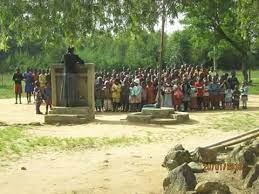Manhinga Village Children’s Home
-
$324,970.00
Funding Goal -
$0.00
Funds Raised -
∞
Days to go -
Target Goal
Campaign End Method
Campaign Story
Situated 50 km on the Rusape-Nyanga highway, Manhinga Village Children’s Home is a Residential Child Care Institution, which operates under the auspices of Social Welfare Department of the Apostolic Faith Mission Church in Zimbabwe. It was founded in 1982 and registered in 1987 as a welfare organization under the Ministry of Public Service, Labor and Social Welfare, to cater for 100 children.
The current infrastructure caters for 60 children aged between one and twenty-four (24) years, who are referred to the institution by the department of social welfare.
The Home is situated on a 361.8-hectare farm registered under the church and enjoys a variety of forestry trees, hills, several blocks of arable land, two streams, two small dams for farming projects. There are 60 thatched round houses divided into six family villages. Each family village has 10 cluster houses comprising of bedrooms, dining and lounge, kitchen, bathrooms, and toilets. The children live under the care of a caregiver/house parent and each family has between eight (8) to ten (10) children.
Objectives
Promoting child welfare through:
• Providing basic and quality food, comfortable and cosy shelter, security, and a sense of belonging to every child and providing leisure and recreational activities to the children.
• Providing health care services to all children and assisting with the administration of medication to the sick, especially the HIV/AIDS clients as well as children living with disabilities.
• Nurturing and bringing up children in the fear of God and training them to become good citizens.
• Facilitating and providing quality education from primary school level up to university and further providing them with life skills such as home economics, woodwork, agricultural, building, carpentry, milking cattle, gardening, etc. for personal development.
• Expanding and becoming self-sufficient through income generating programs such as, horticulture, beekeeping, livestock production.
• Partnering and networking with key stakeholders within the corporate sector, local and international development agencies.

